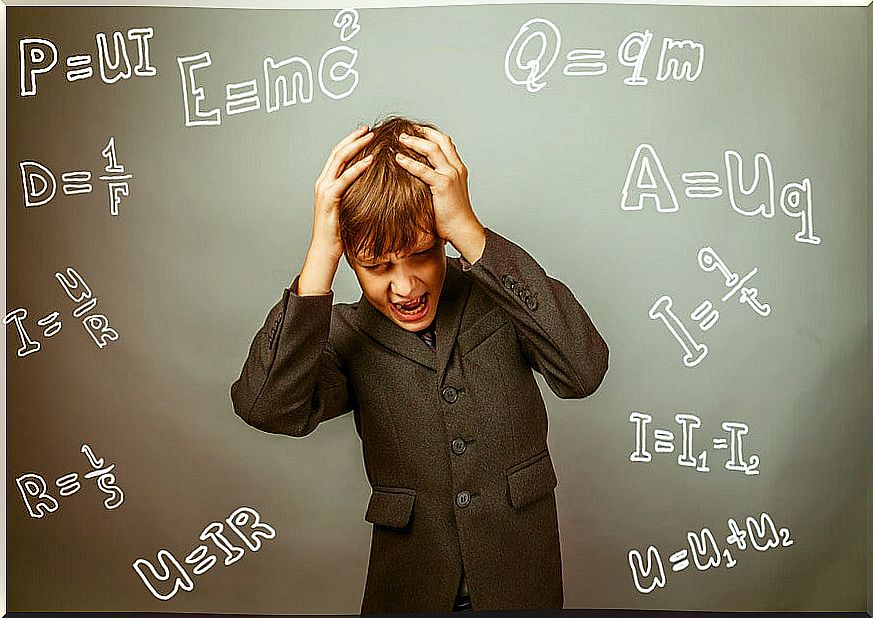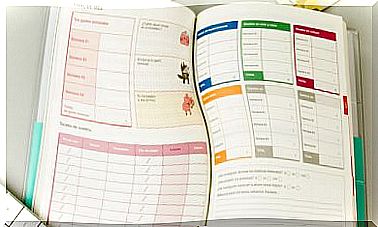A Child’s Intelligence Does Not Depend On His Grades
Although all parents are impressed by good grades, you should know that your child’s intelligence is not measured by a punctual exam. We will tell you.

Although we know that a child’s intelligence does not depend on his grades, how impressed parents are with grades! An outstanding fills us with pride; A pass or fail, on the other hand, disappoints us, as if that grade defines who our son is and what his abilities are.
School grades are a way of measuring knowledge. However, they do not account for the effort and dedication that the infant has invested in the learning process. Nor do they show whether the child has indeed learned something consistently.
Keep in mind that a child with a good memory may get good grades overall, but an infant with an intelligence other than the subject in which he is being tested is likely to have tremendous success in a particular field.
Let’s go deeper.
The intelligence of the child
According to the psychologist and researcher Howard Gardner, in each person there are eight types of intelligences or cognitive abilities. This theory of multiple intelligences is recognized in many educational settings.
According to the approach of this North American professor, there is no single human intelligence. There is great diversity, which marks the potentialities, strengths and weaknesses that each individual has and which will mark their performance in different scenarios.
This theory of multiple intelligences makes it possible to assess, understand and stimulate the potentialities of each child, beyond what can be measured by an IQ index.
The types of intelligence

1. Linguistic intelligence
Children with this type of intelligence learn to write, read, tell stories, or do crossword puzzles with great ease. His oral language is as good as his written. They have a facility for learning languages.
2. Logical-mathematical intelligence
Children easily solve arithmetic problems, logic-mathematical problems, strategy games and experiments. Those with this type of intelligence find it very easy to solve IQ tests.
3. Visual and spatial intelligence
Children who like to spend their free time drawing, solving puzzles or building games are more likely to develop this type of intelligence. They think in pictures and drawings.
4. Musical intelligence
They are the children who enjoy, learn and appreciate songs and music. They easily identify sounds and have a knack for learning to play a musical instrument.
5. Kinesthetic body intelligence
These have a remarkable ability to perform activities that require strength, speed, flexibility, balance and coordination between the eye and the hand. They unite mind and body to achieve the best physical performance.
6. Naturalistic intelligence
They are those who think instinctively and are great observers. This intelligence is linked to feelings towards nature, animals and people. They have the ability to create with natural materials.
7. Interpersonal intelligence

Also known as social intelligence. They are children who communicate well and are leaders in their groups. They understand the feelings of others well. It makes it easier for them to have interpersonal relationships.
8. Intrapersonal intelligence
It is related to the child’s ability to know himself: his emotions, reactions and his inner world. It is what other specialists call emotional intelligence. They are able to name emotions, interpret and guide their own behavior.
Facing bad grades
When your child arrives with the report card, it is normal for you to worry about poor grades. Before reprimanding and punishing, have time, attention, and lots of love to help the child overcome difficulties, discover their talents, and encourage them. For this, we leave you these recommendations:
- Each child has his own evolutionary and learning rhythm. Respect that rhythm, so that motivation for learning is not affected.
- Children’s school results do not depend exclusively on the teachers or other professionals who work in the school. Support at home is essential.
- Avoid labeling your child when he gets bad grades. “You’re stupid, you don’t know, you don’t understand” are expressions that make a dent in children and are useless to improve the situation.
- Seeks information to understand how the learning process is going; value effort over result.
- It works on the motivation and the child’s confidence in himself. This has a high emotional component that you have to feed.
- Organize your child’s study days: don’t miss the minutes for rest and play.
- When they do their best and get better results, reward your child with praise, hugs, and gestures that express your satisfaction and love.

Support your son
Although the theory of multiple intelligences is accepted in many educational centers, there are also many who will continue to believe in grades as the way to measure the abilities of children.
If you do not have the good fortune that your child studies in these types of schools, do not let yourself be overwhelmed by poor grades. Neither for the excellent ones. The grades are measurements in a moment, but they do not account for the intelligence of the child or the learning process.
The role of parents is to help their children overcome difficulties and enhance their strengths. Beyond the school not having the vision to see capabilities in other ways, much can be accomplished at home.
If you stimulate and reinforce it, it will achieve everything it sets out to do.









